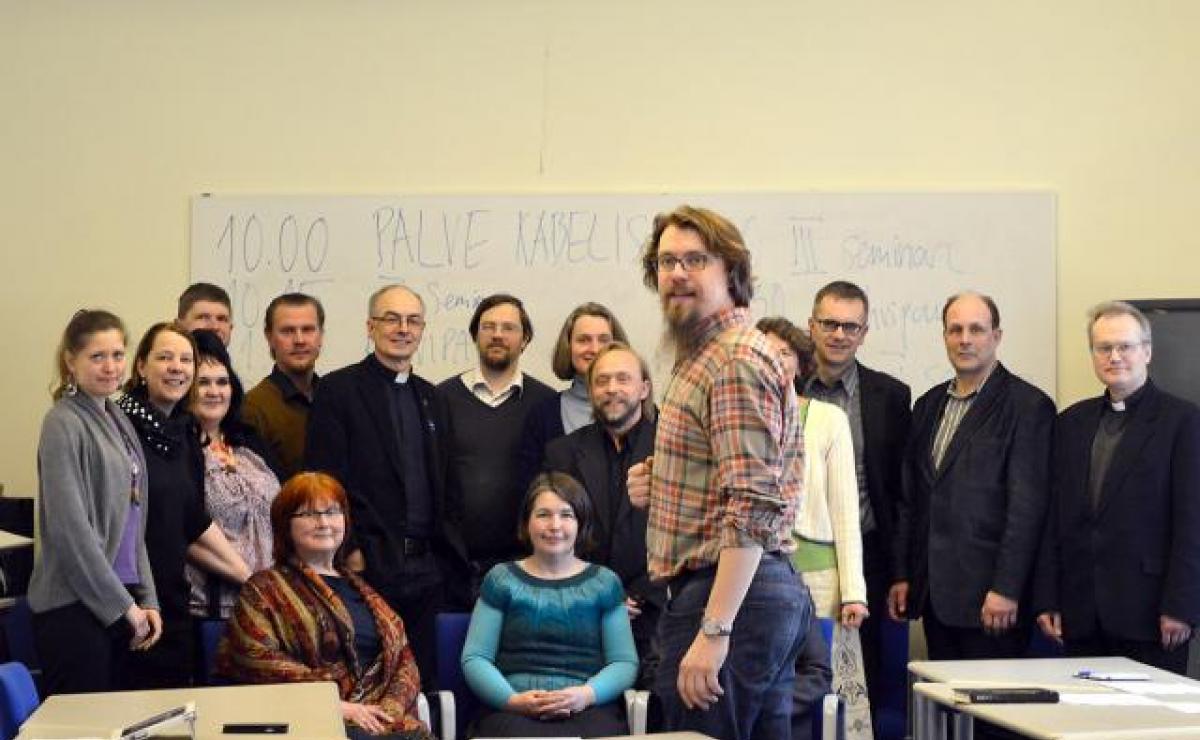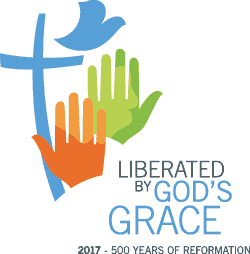Reformation: A bridge between the local and global church

Courses on LWF booklets in Estonia a source of inspiration for ongoing reformation
(LWI) - Innovative courses created by the Estonian Evangelical Lutheran Church (EELC) Institute of Theology on this year’s Reformation anniversary are generating better understanding of the local and global extent of the Lutheran church among dozens of students, pastors and other church workers.
The courses are based on the themes of four booklets published by The Lutheran World Federation (LWF) to mark 500 years of the Reformation in 2017. The Estonian institute has translated the content to help EELC members understand the breadth and diversity of the worldwide Lutheran communion to which it belongs.
“The most significant part of this study process for the participants was certainly realizing the global extent of the Lutheran church, its contextual diversity, but also perceiving the shared fundamental understandings,” said Rev. Prof. Thomas-Andreas Põder, head of Systematic Theology at the institute.
“It was very important for us to celebrate the Reformation anniversary in the local Lutheran church and in Estonian society in a way that contributes to building a bridge between our local church and the global communion of Lutheran churches.”
While it wasn’t expected that the Reformation anniversary theme, “Liberated by God’s Grace” and sub-themes articulating that salvation, creation and human beings are not for sale, would gain much immediate attention in the highly secularized Estonian society, Põder said the topics offer insights that are worth reflecting on and discussing in the country.
“Within the church the theme, ‘Liberated by God’s Grace’ has undoubtedly been carried on and it has been reflected in many ways. Most importantly and generally one could say that the theme has nurtured and supported the celebration of the Reformation in our context.”
The LWF booklets in Estonian are source materials for four different courses over 2016-2017 under a program titled “Liberated by God’s Grace: Lutheran understanding of possibilities and challenges of Christian and ecclesial life today.”
The booklets have also been used for graduate-level courses on “Churches and Theology at the Beginning of the Third Millennium” and “Church and Christianity in the 21st Century.”
Possibilities and challenges of ecclesial life
The booklets in Estonian were introduced in October 2016 at a two-day high level conference, “Reformation 500 – Spirituality, Cultural Effects, Perspectives,” which drew 200 participants. They will continue to be used by the institute in the future, Põder added.
“The aim of the courses was to achieve a deeper and more exact understanding of the possibilities and challenges of Christian and ecclesial life today,” he noted.
The continuing education programs utilizing the LWF booklets on the sub-themes, “Salvation – Not for Sale”, “Human Beings – Not for Sale” and “Creation – Not for Sale”, discussed ways of being Lutheran in the global as well as Estonian context in the 21st century.
The 16th century Lutheran Reformation had a deep impact on Estonia’s culture and society, including its language and literature. The Wanradt-Koell Catechism, printed in Wittenberg in 1535, is the oldest fragment of a published book in Estonian.
However, during the Soviet occupation of Estonia, the church’s activities were legally restricted and mainly limited to the liturgical scope. Being a Christian became a private matter in Estonia.
Since the country’s independence 25 years ago, however, EELC, which has 160,000 members, has attempted to become more visible in Estonian society. Out of a population of 1.3 million people, only 30 percent belong to Christian denominations. Still, church members need to gain better realization that church and faith have a public role, Põder emphasized.
Gratitude and encouragement
“Luther’s basic theological understanding that God’s grace has been given to us as a free and precious gift, which evokes gratitude and encourages us to live our lives as Christians, not only in private but in the public context, is as helpful today as it was during the times of the Reformation,” Põder said.
He noted that participants in the courses were delighted to be able to consider the Reformation booklets in their own context. Participants’ essays, some of which were printed in the popular journal Church & Theology, focused on living a balanced life and on witnessing in Europe without dismissing the “other”.
They discussed understanding of sin and justification, but also European policy, society and culture, as well as leadership and participation in the church, environmental protection and diakonia.
“The basic principles that were rediscovered by the Reformation can thus still be a major source of inspiration for the ongoing reformation, which seeks ways to lead a meaningful Christian life today,” Põder concluded.

